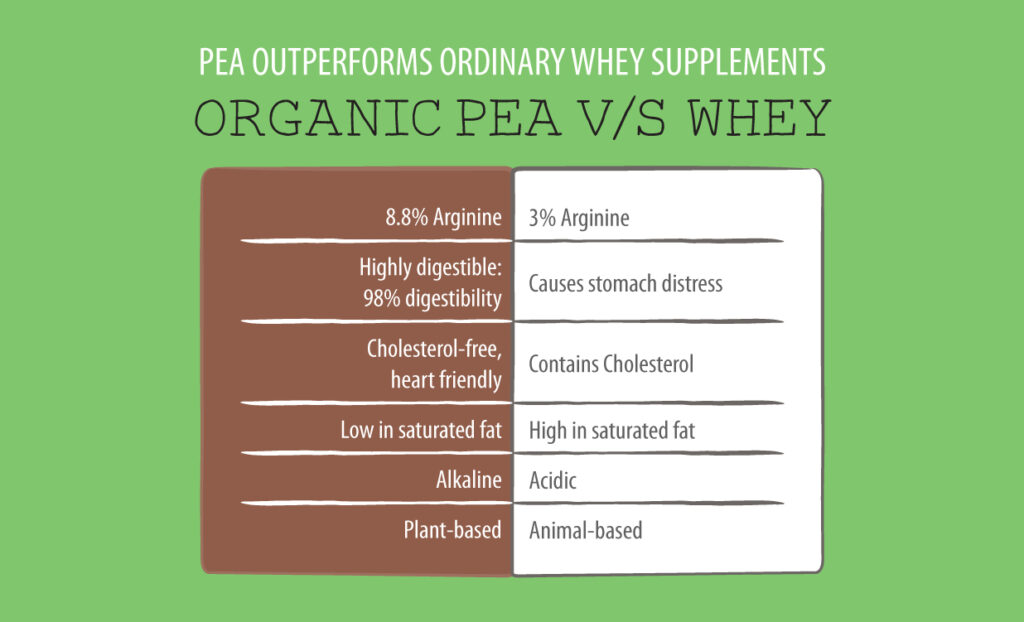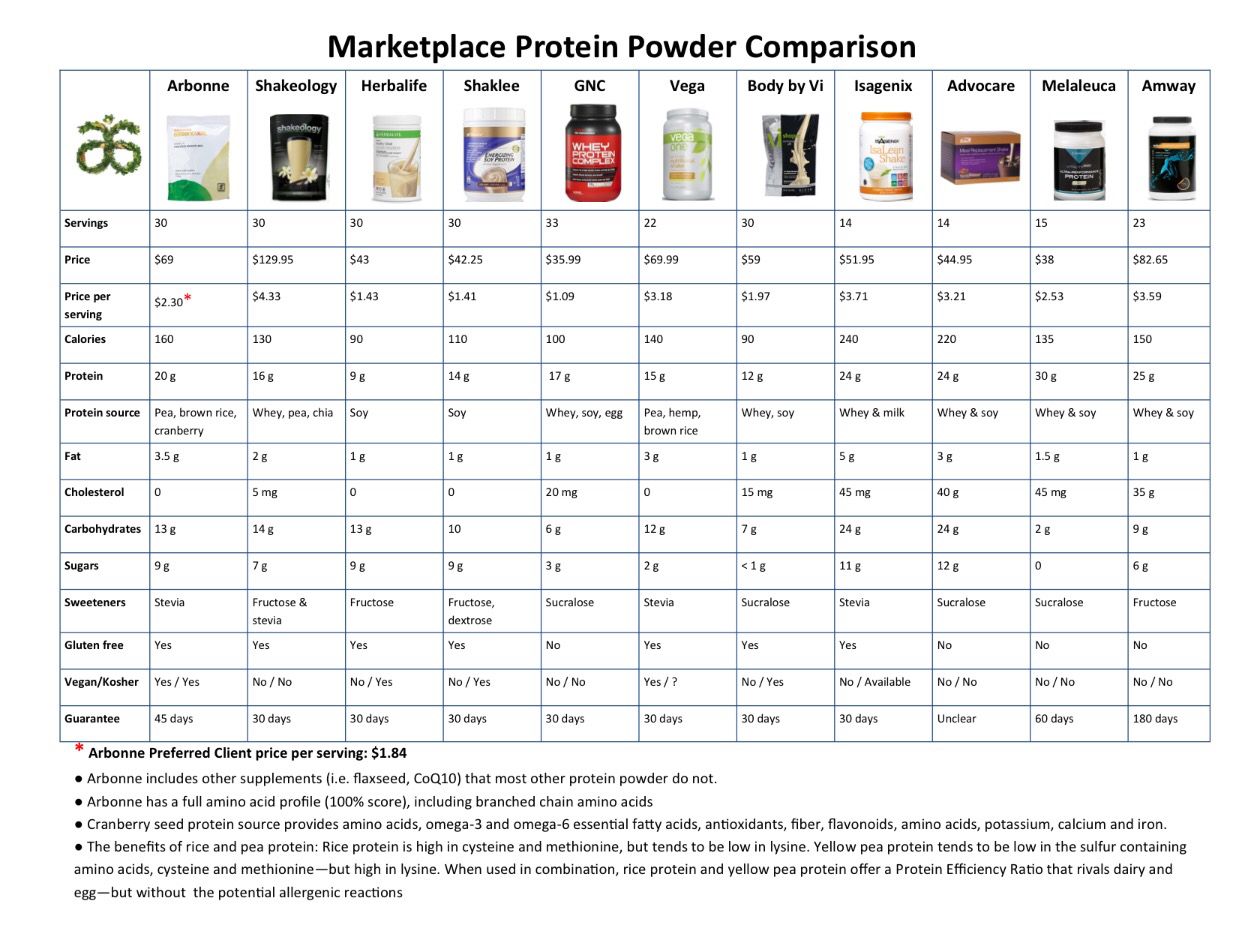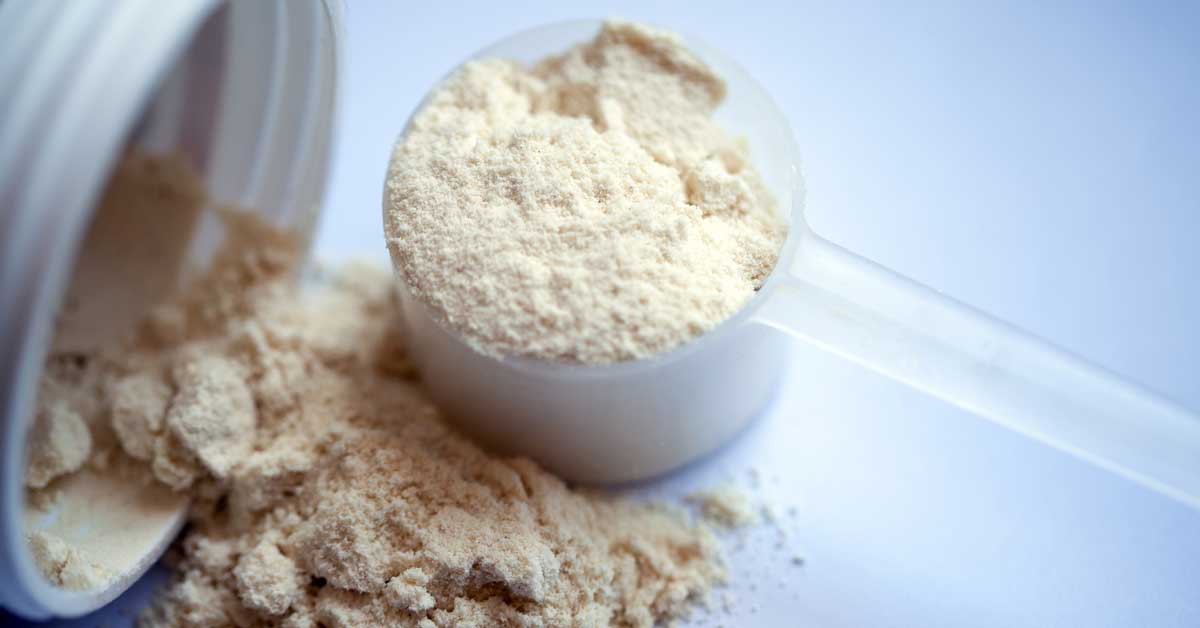Protein powder is a commonly-used nutritional supplement. It helps repair tissue, build muscle, and make hormones and enzymes. Consuming protein supplements might also help with muscle toning and facilitate weight loss.
There are many different forms of protein powder supplements, including plant-based and dairy-based powders. Let’s take a detailed look at what protein powder supplements are and what they do.
What Are Protein Powders?
Protein powder are concentrated protein sources made from plants or animals, such as eggs, dairy, peas, or rice.
Basically, there are three common types of protein powders:
- Protein Concentrates: Made by extracting protein from whole food using enzymes or acid and heat. These generally supply 60 to 80 percent protein, with the remaining 20 to 40 percent composed of carbs and fats.
- Protein Isolates: An extra filtering process eliminates more carbs and fat, concentrating the protein even more. Protein isolate powders comprise about 90 to 95 percent protein.
- Protein Hydrolysates: Made by further heating with enzymes or acids – which breaks the amino acid bonds – hydrolysates are absorbed faster by your muscles and body.
What Do Protein Powder Supplements Do?
Protein is one of the crucial components of skin, bone, and muscle. Our bodies need protein to produce enzymes, hormones, along with other chemicals.
Here are some things that protein powder supplements can do.
1. Help with Weight Management
Consuming foods rich in protein and taking protein powder supplements might help people feel fuller for longer. This feeling of fullness results in reduced portion sizes and less frequent snacking, which allows a person to keep a healthy weight or shed extra kilos if needed.
A 2017 review said that supplementing your diet with whey protein might lower body weight and total fast mass in obese or overweight people. It might also lower total cholesterol, blood pressure, and the risk of heart disease.
2. Facilitates Muscle Growth
Protein is vital for muscle growth. Several gym enthusiasts and athletes drink protein shakes to help them build muscle after strength training.
An analysis of 49 studies conducted in 2018 supports the use of protein supplements for building muscle mass. The analysis states that protein supplements considerably increase muscle size and strength in healthy adults who do resistance exercise training.
Moreover, protein supplements were equally effective in both males and females. Nevertheless, the effectiveness might decline with age, as older people need more protein as compared to younger individuals.
3. Aids Post-Exercise Recovery
Along with boosting muscle growth, protein powder supplements can also help to repair damaged tissues and muscles. Consequently, athletes might use protein powder supplements to fasten recovery due to muscle soreness after a workout.
Several studies say that taking protein powder supplements after working out can boost recovery by lowering muscle damage and enhancing muscle protein synthesis and muscle performance.
4. Extra Source of Nutrition
The ideal daily consumption of protein for individuals aged 19 years and above is 56 grams for males and 46 grams for females.
People who find it tough to meet these recommended quantities, perhaps including certain vegetarians and vegans, might find the protein powder supplements offer an excellent solution.
Weight-lifters, athletes, people suffering from a chronic illness, and older adults might need to consume more protein than the recommended daily intake.
Research reveals that athletes who have intense training schedules might benefit from consuming approximately double the ideal daily intake of protein, ranging from 1.4 to 2.0 grams per kg of body weight. This is equal to 111 to 159 grams per day for an individual who weighs 80kg.
Types of Protein Powder Supplements
There are various kinds of protein powder supplements. Whey is the most commonly-used one and the one that researchers have generally focused on. However, there are several others too. Here is a list of some common kinds of protein powder supplements.
- Whey: This milk protein is commonly consumed by athletes. It contains all the amino acids that your body needs from food. Whey protein is easily and quickly absorbed by your body.
- Casein: This protein has high amounts of glutamine, an amino acid that can fasten muscle recovery after a workout. Since casein is extracted from dairy, it is not suitable for vegans and lactose-intolerant individuals. Casein protein is digested more slowly by the body. Thus, it’s recommended to take it at night.
- Soy: Appropriate for vegans, soy protein, makes an excellent plant-based substitute to whey protein as it has all the vital amino acids. Soy protein is also low in carbs and fat. However, it’s not as water-soluble as whey protein.
- Pea: Even though pea protein powder has all the nine important amino acids, it’s low in methionine. You can overcome this deficiency by mixing pea protein powder with protein powder made from brown rice. Pea protein powder also has high amounts of iron, an essential nutrient for females.

Should You Take Protein Powder Supplements?
Most individuals, even those who are training hard, can fulfill all of their protein needs for muscle recovery by adding portions of high-quality protein in their everyday meals.
A systematic review conducted by the US Army Research Institute of Environmental Medicine in 2015 revealed that for untrained participants, taking protein powder supplements in the first few weeks of resistance training did not affect lean muscle mass or muscle strength.
As training frequency, volume, and duration increase, a protein powder supplement might increase muscle strength, size, power, and endurance.
In 2020, the Harvard School of Medicine stated that protein powder supplements are a processed food that might contain flavors, sugars, additives, and other chemicals. In addition, these supplements aren’t regulated in several countries, which means that the labeling and safety of these products aren’t monitored, and any claims are not usually verified.
Wrapping Up!
Protein powder supplements can offer high-quality protein in a convenient and concentrated form.
While everyone doesn’t need protein powder supplements, they can help you if you do strength training or are unable to meet your protein requirements through diet alone. 

